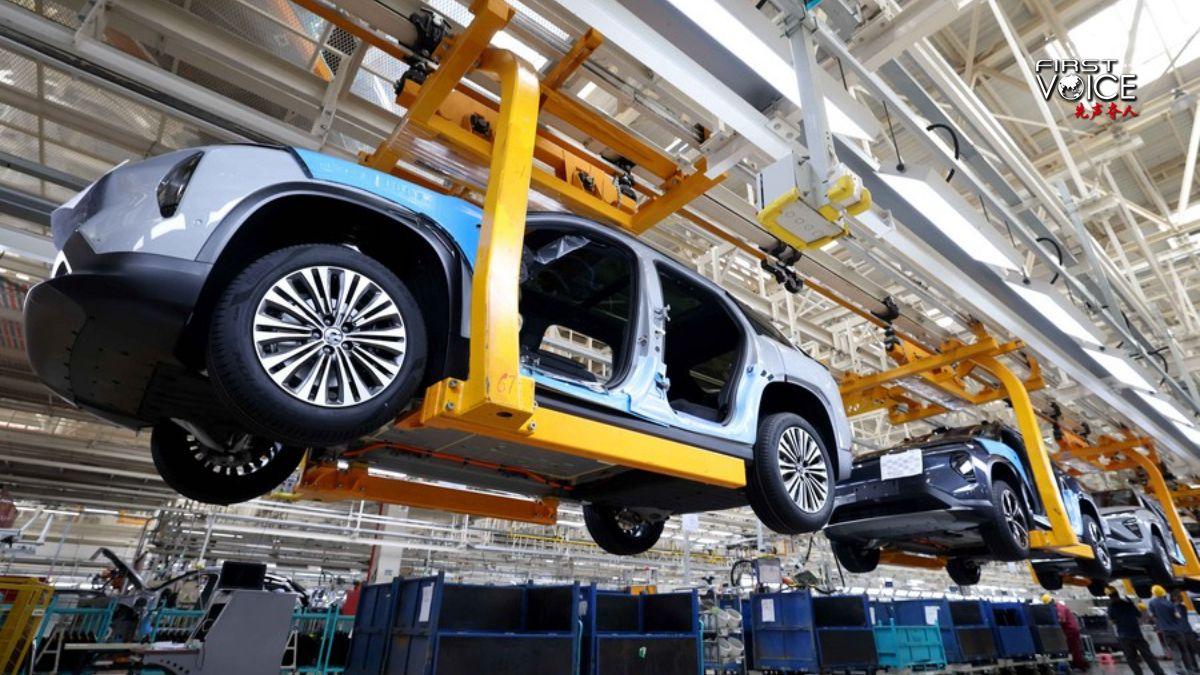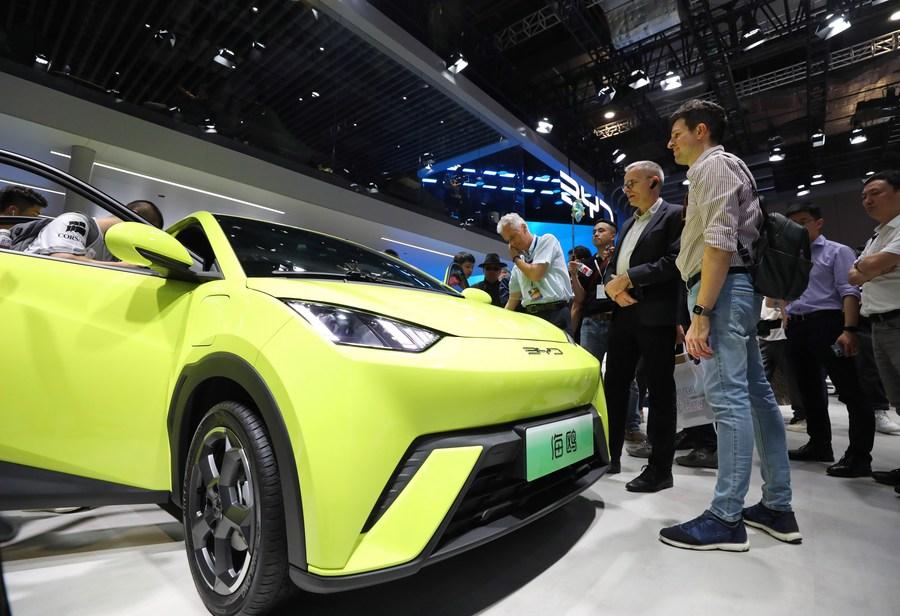
A vehicle production line at a new-energy vehicle factory in Hefei, East China's Anhui Province. [Photo/Xinhua]
Editor's note: CGTN's First Voice provides instant commentary on breaking stories. The column clarifies emerging issues and better defines the news agenda, offering a Chinese perspective on the latest global events.
U.S. President Joe Biden on Tuesday announced sweeping tariff hikes on Chinese imports ranging from electric vehicles (EVs) to solar cells as part of a package of measures designed to ostensibly protect American jobs. In one of the sharpest hikes, levies on Chinese EVs will jump to 100 percent this year.
U.S. Treasury Secretary Janet Yellen defended Biden's decision, saying, "We're not willing to allow our emerging industries we're targeting for support to be wiped out through China's action." She also added that the levies would protect the development of U.S. sectors and secure their supply chains.
However, a tariff fight against China, contrary to Washington's wishful thinking, will make ordinary Americans the largest victim.
To begin with, tariffs tax the consumer. Admittedly, few Chinese EVs are sold in the United States, so the immediate impact of the tariff on American consumers will be minimal. But the deep integration of global supply chains means the U.S. market will be inevitably harmed by the hike.
The U.S. already imports substantial amounts of materials from China for its own EV production. According to the U.S. Department of Transportation, American EV brands including Tesla and Ford Mustang have 30 percent to 51 percent Chinese contents. "From the battery, from the mining, from all the technology integration, the Chinese supply chain now is the leading supply chain. It's the best," Reuters quoted Stella Li, CEO of BYD Americas, as saying.
Shutting the door on China's high-quality and cost-efficient materials will inevitably drive up the costs of EV production, batteries and other hardware in the United States. In this context, Biden's tariff hike against China is in fact a strike against his domestic firms relying on Chinese materials, with American consumers paying the final price.

A BYD Seagull is displayed at the 20th Shanghai International Automobile Industry Exhibition in Shanghai, east China, April 18, 2023. [Photo/Xinhua]
The Biden administration wants to protect American industries. But regrettably, it fails to understand this simple fact: cracking down on rivals cannot make American EVs more competitive in the global competition. "If General Motors, Ford and Stellantis don't have to compete against foreign companies that make EVs, they won't make them … And the Americans will lose market share like they did in the 1970s," Reuters reported Daniel Becker of the Center for Biological Diversity as saying.
"We are disappointed with the outcome because maintenance of the prior tariffs – with no reductions – and imposition of additional tariffs ultimately make it harder for American companies to compete in the U.S. and abroad," the Financial Times quoted Craig Allen, President of the U.S.-China Business Council, as saying.
In addition, Biden's sweeping tariff hikes are highly likely to invite countermeasures from the China. China's Foreign Ministry said on Tuesday that "all necessary measures" will be taken to safeguard the country's legitimate rights and interests. While there will be no winner, Washington will suffer more from a tariff war against Beijing.
According to official data, the U.S. exported more than 155,000 passenger vehicles and light trucks to China in 2021, more than doubling the number China sent to the U.S. in the same year. Statistics from Washington-based think tank Center for Strategic and International Studies shows that only 2 percent of America’s EV imports come from China. This means while Biden's tariff hikes will not exert a major impact on Chinese industries, countermeasures from the Chinese side could strike a heavy blow to American companies seeking to send their products to the Chinese market.
If the Biden administration is sincere in protecting American jobs, it should do exactly the opposite: cooperate with China to rebuild the domestic manufacturing capacity. Former U.S. President Donald Trump made a huge mistake by launching a tariff war against China; Biden should avoid compounding one mistake with another.

 中文
中文



